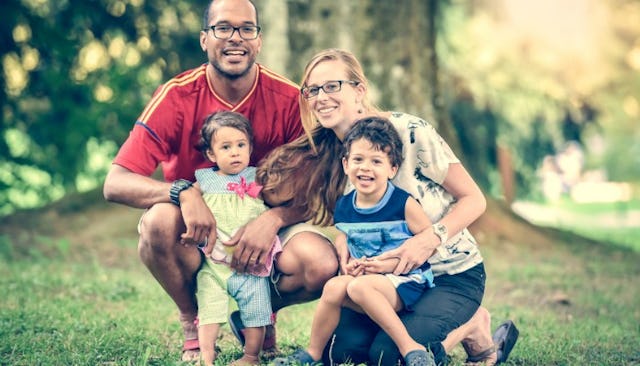A Vote For Trump Is An Act That Can't Be Undone, And For Me, It's Personal

Today was the day I broke. Maybe we’ve all had a day where we broke just a little bit during the unprecedented vitriol filling this presidential election season. Two headlines did it: One was about the KKK’s primary newspaper endorsing Donald Trump, and another one was about a black church in Mississippi that was vandalized with the words “Vote Trump” and set on fire.
There are a thousand reasons why Donald Trump is unfit to be president. People far more qualified and more eloquent than I am have already enumerated these reasons. And I’ve been able to mostly write off the handful of people I know voting for him. It may smack of intellectual arrogance, but research suggests that less educated voters are flocking to Trump. Silly dum-dums, they don’t know any better. I have plenty of friends whose personal politics run well to the right of mine. We’ve had reasoned, fact-based debates about the appropriate role of government in financial markets, health care, corporate regulation, and global affairs. Most of these friends are voting for a third-party candidate or sitting this one out. Some are voting for Hillary as a sign of protest to a party that’s veered dangerously off of any rational course.
This is because you’d have to bury your head in the sand to miss the flagrant racism and misogyny of the Trump campaign and of Trump himself. I suppose his campaign has opened the floodgates to the “nationalism” that’s been lurking in the darkest corners of the collective American psyche. He’s given voice to a deep-seated fear of “other” — other races, other cultures, other religions. He’s legitimized behavior no decent citizen of this country would have engaged in before this election season — shouting racial epithets or anti-Semitic slurs, or racially motivated physical aggression in broad daylight with news cameras rolling.
You can bluster until you’re blue in the face about tax policy, regulation, and Supreme Court nominees, but there’s no avoiding the cold hard truth. A vote for Trump is a tacit acceptance, if not endorsement, of the vilest, scariest iteration of racism and sexism in the modern era.
A memory of an encounter I had more than a year ago has haunted me today, as I try to make sense of my emotions. I was at a get-together speaking with a distant relative about plans for a family trip to Washington, D.C., and shared my hope that my kids would get to see the White House. As I stood talking with this man with my infant half-black daughter in my arms, he replied, “Let’s just hope we can get the White House white again!”
As soon as the words escaped his mouth, his face went blank. I’m sure mine did too. He realized the instant he uttered the words that I might not be quite the right audience for this sound bite he’d no doubt heard or shared with others. I’d love to chalk it up to ignorance, but this man is a physician. He’s treated thousands of children in an emergency room. He’d always struck me as kind and upstanding.
But you can’t unsay words like that. I’d like to hope he learned something from that moment. Maybe he took some time for introspection after the conversation. Maybe he thought about my black husband, my two biracial sons, and my infant biracial daughter, and reflected on the pain his words would inflict. Maybe he felt some compunction or regret.
We stood together for another 30 seconds in silence, neither of us knowing what to say. And then I made an excuse and walked away. I haven’t seen him since.
I don’t know what brought this memory to the fore today, more than a year since the incident took place. I think, perhaps, it’s how I feel about the acquaintances and distant relatives in my world who plan to vote for Trump. Kind of like those words that can’t be unsaid — a vote for Trump is an act that can’t be undone. And it’s an act that I can’t forget.
We may cross paths in the future. I’ll smile and say “hello,” and then make my way to the other side of the room.
[free_ebook]
This article was originally published on